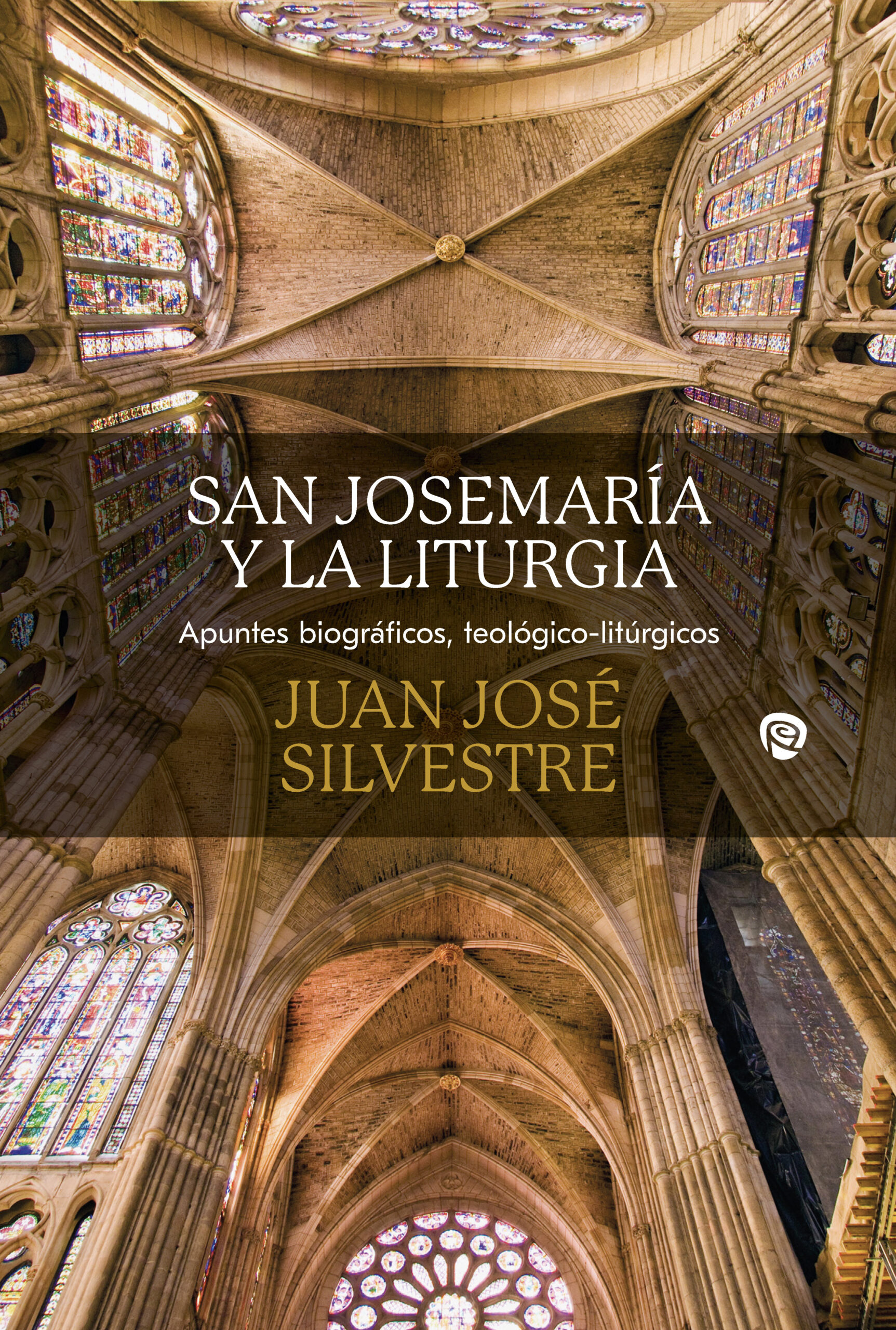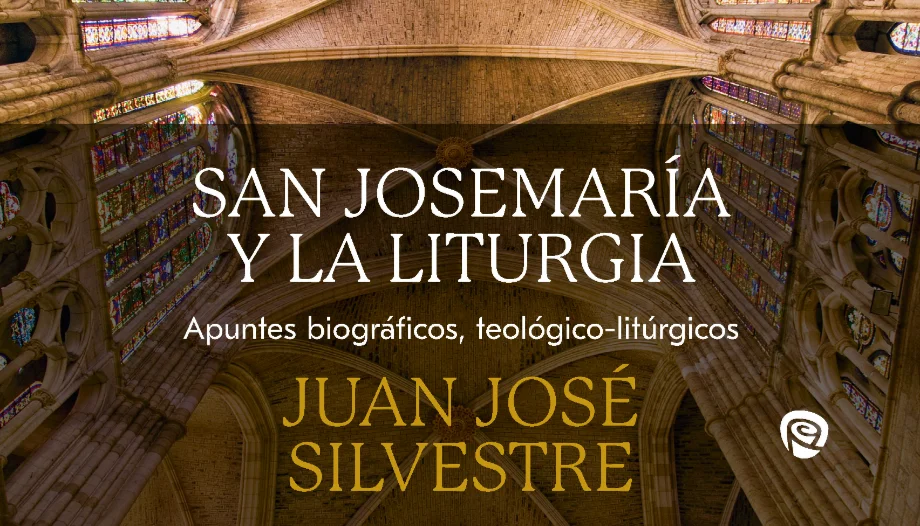The careful reading of the magnificent work of the professor Juan José Silvestre (Alcoy, Alicante, 1973), doctor in Sacred Liturgy from the Anselmian Institute in Rome, consultant to the Dicastery for Divine Worship and the Discipline of the Sacraments and professor at the Faculty of Theology of the University of Navarre, about the meaning of the liturgy in the preaching and writings of St. Josemaría Escrivá, I have come to think of a wise professor in his subject who joyfully searches his roots in order to regenerate the science he has lived and studied since its origins.
In the great theological reform carried out by the School of Salamanca, which notably influenced the Council of Trent and the great reform of the Church both in Europe and America in the 16th century, undoubtedly influenced one of its fundamental principles: "ad fontes". That is, to return to the sources, to the oral and written revelation of Jesus Christ, transmitted, preserved and deepened by the magisterium of the church and by the great tradition of theology and canon law of holy and profound men who had been able to live, study and transmit the treasure of Christian revelation during their time and in their lives.
The liturgical movement
Professor Silvestre will begin his work by posing the key question for a liturgist of the 21st century: whether St. Josemaría belonged to the great liturgical movement that, since 1904 with St. Pius X, has been spreading throughout the universal Church until it converged in the Second Vatican Council, and was embodied in the first great document of the Council, the dogmatic Constitution "Sacrosantum Concilium.
St. John Paul II published an Apostolic Letter on the occasion of the 40th anniversary of the above-mentioned Constitution, in which he wrote: "The promulgation of the Constitution 'Sacrosanctum Concilium' marked a stage in the life of the Church of fundamental importance for the promotion and development of the liturgy. The Church, which, animated by the breath of the Holy Spirit, lives her mission as a 'sacrament, or sign and instrument of intimate union with God and of the unity of the whole human race' (Lumen gentium, n. 1), finds in the liturgy the highest expression of her mystical reality" (Apostolic Letter "The Liturgy").Spiritus et sponsa"Rome 4.XII.2003, n.16).
Professor Silvestre, therefore, will study all the documents of the Church's magisterium during the 20th century in order to trace the birth of the liturgical movement and its intuitions, as well as the doctrines of the great liturgists of the 20th century, their monographs, articles and conference papers, etc., and, finally, he will delve into the works of St. Josemaría in order to conclude that St. Josemaría was indeed a true pioneer of the liturgical movement (29, 38).
I remember a conversation with the great historian of the liturgical movement and the liturgy, Father Manuel Garrido OSB (1925-2013), who was a member of the Tribunal for the diocesan phase of the process of beatification and canonization of St. Josemaría Escrivá in Madrid, who said that for him the most important of St. Josemaría's contributions to the liturgical movement was how he had formed the faithful of Opus Dei and cooperators and friends in the way of loving and living the liturgy.
The liturgy and St. Josemaría
The work of Professor Juan José Silvestre will explain in detail the way in which St. Josemaría lived the Liturgy of the Church and how he taught it by his example and his words to people of all kinds and conditions, especially to the priests of the Prelature of Opus Dei and the Priestly Society of the Holy Cross, as can be seen simply by watching them celebrate Mass, impart the blessing in a ceremony or distribute communion.
As always, we must emphasize that Professor Silvestre naturally lives a great historical rigor in the works he has published and always knows how to frame his works in historical coordinates, because in this way his theological and canonical argumentation has much more solidity.
Likewise, we must emphasize that Professor Silvestre knows how to reason theologically the questions he deals with and, therefore, he is a liturgist with whom we can dialogue, since with others it is very difficult for them to listen to the argumentation of someone who has a different criterion from theirs, which happens simply due to lack of intellectual soundness.
Main contributions
With regard to the contributions of Professor Silvestre in this work, we consider important the development made by St. Josemaría and studied by our author regarding the concept of "identification with Christ of the priest" both at the time of the celebration of Mass, "in persona Christi," and habitually throughout the day, as St. Josemaría used to ask priests: "to have the same sentiments as Christ on the Cross" (188).
Along these lines, it seems important and revealing from a liturgical point of view the anecdote that took place on August 7, 1931, at the Patronato de enfermos, when St. Josemaría received a divine locution in his interior with those words from the Gospel of St. John: "When I am lifted up on high, I will draw all things to myself" (I John 12:32), and he saw the sanctification of temporal tasks become a reality (174, 178).
It is also worthwhile to include a few words by Professor Silvestre about how St. Josemaría applied in the centers of Opus Dei the measures taken by the Roman Pontiffs and in each diocese by the Ordinaries to live faithfully the provisions of the Second Vatican Council. At the same time, our author does not fail to recall "the pain that St. Josemaría suffered in the face of the abuses and deformations that the liturgy underwent in the years following the Second Vatican Council" (212).
It is very instructive and formative to recommend that readers of this work take a closer look at the last part of Professor Silvestre's work, which contains many of St. Josemaría's texts scattered in his written works and in his oral preaching on how to live the parts of the Mass with a "passion of love," taking advantage of the depth contained in the rubrics of the Mass and the history of the Mass: "encounters of love between Christ and his Church," as Professor Silvestre calls them (249).
St. Josemaría and the liturgy








